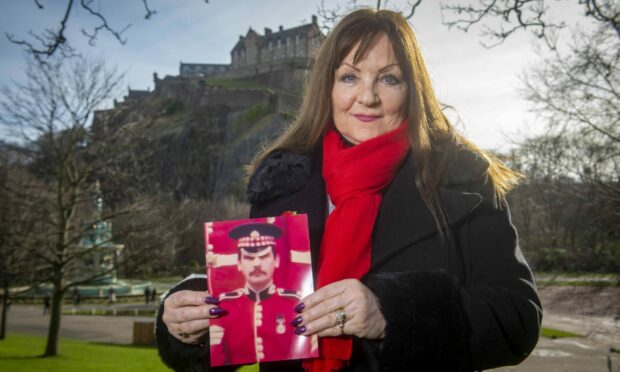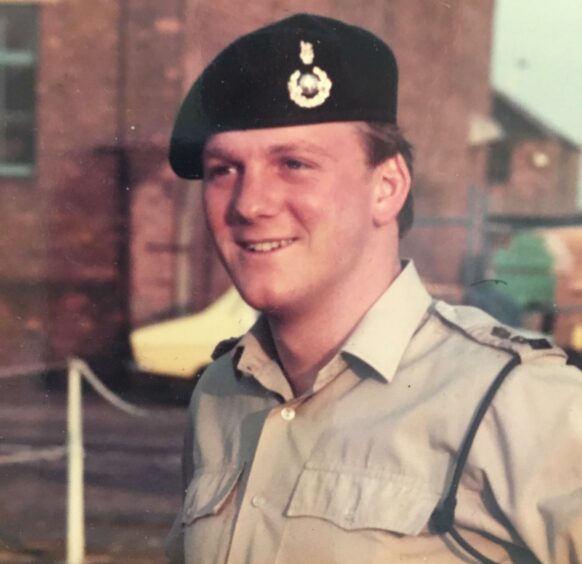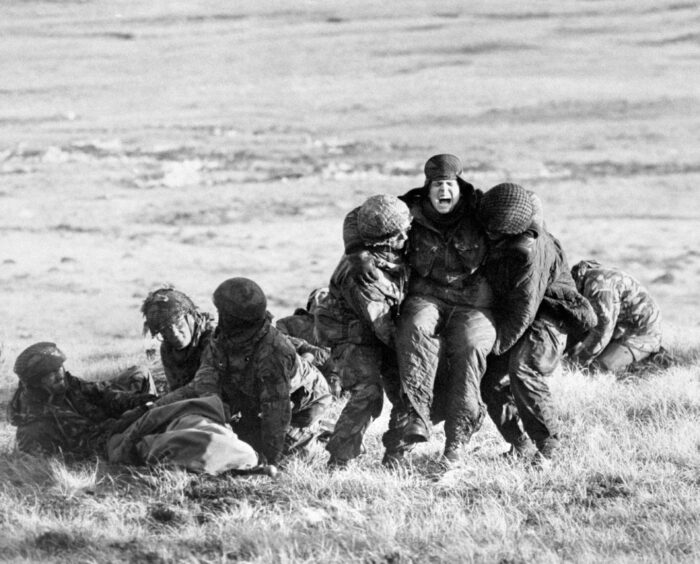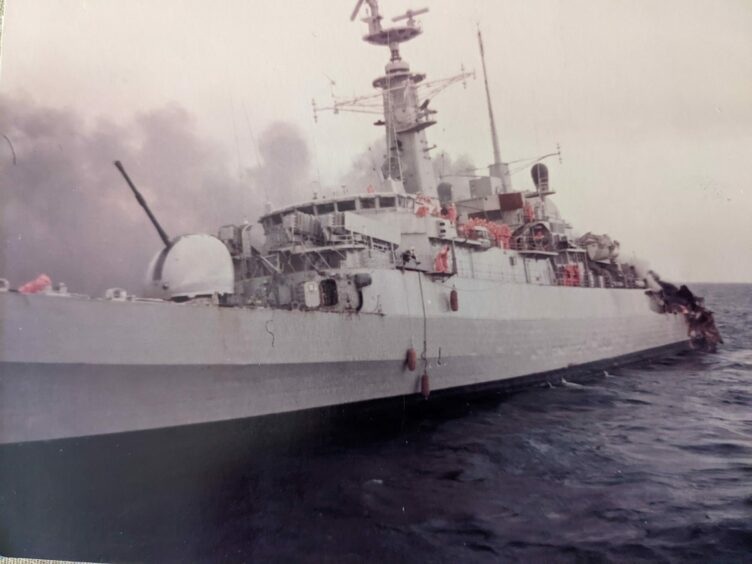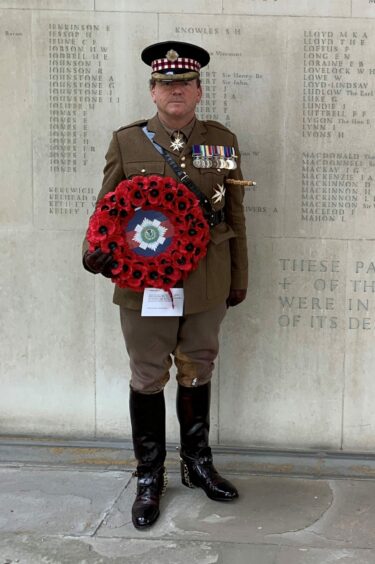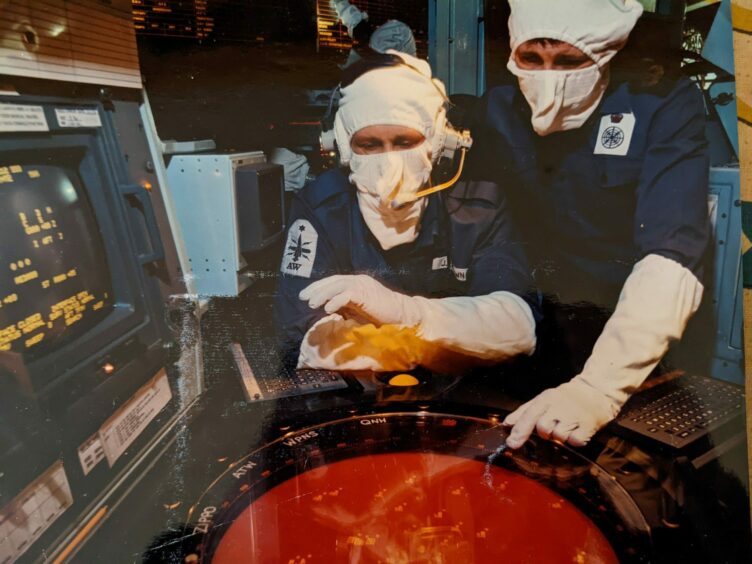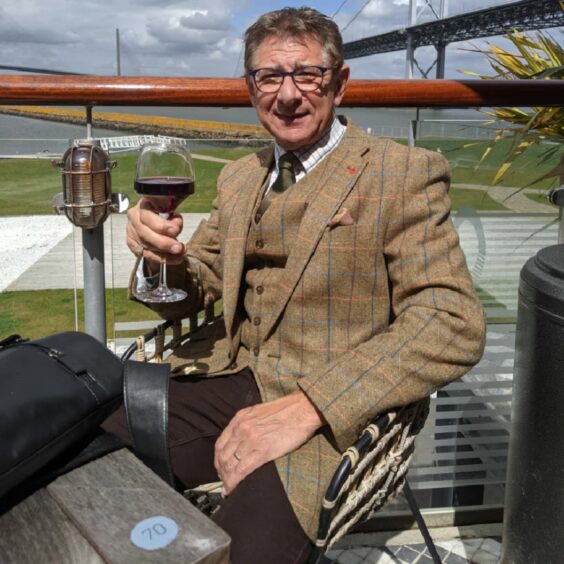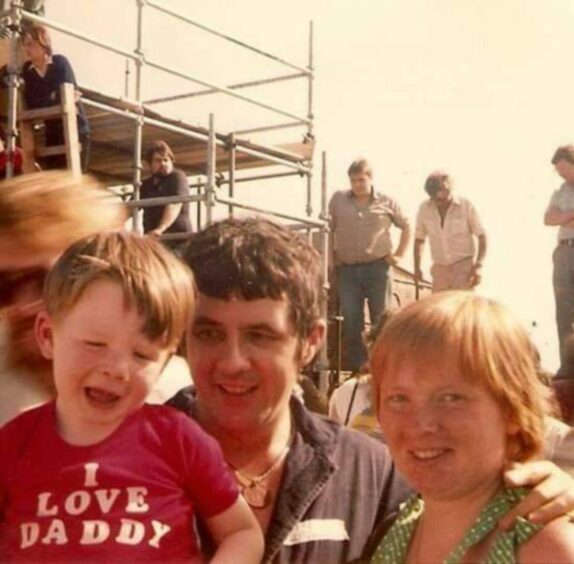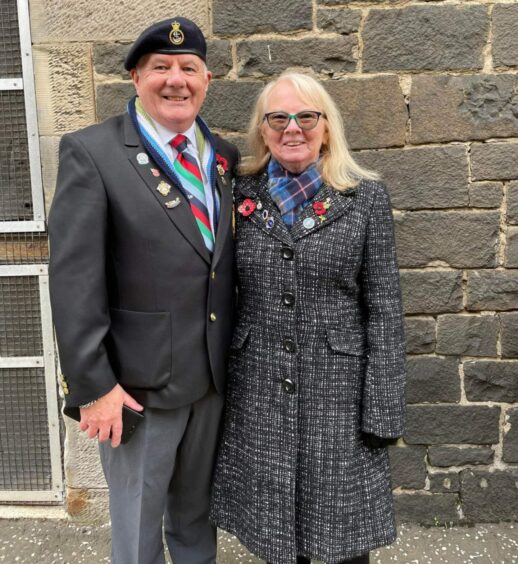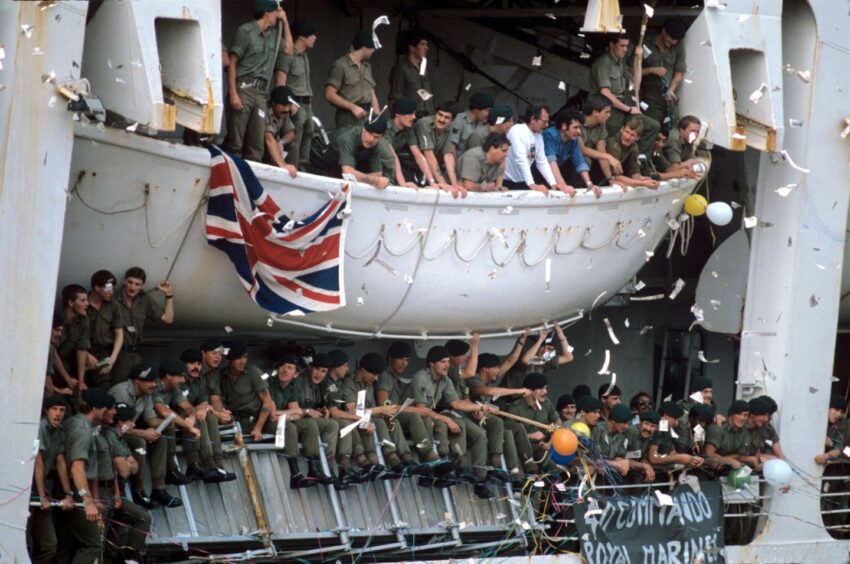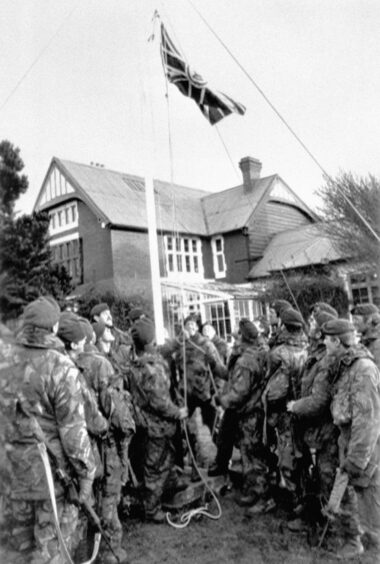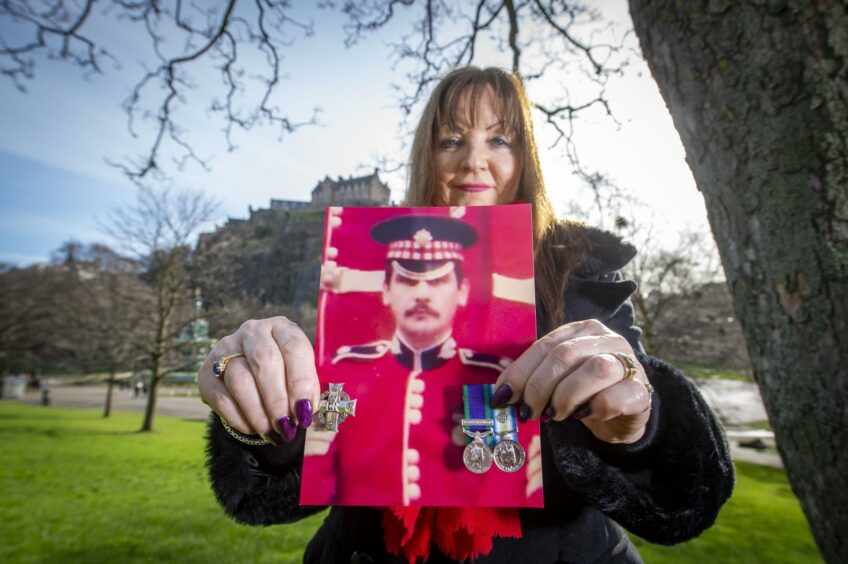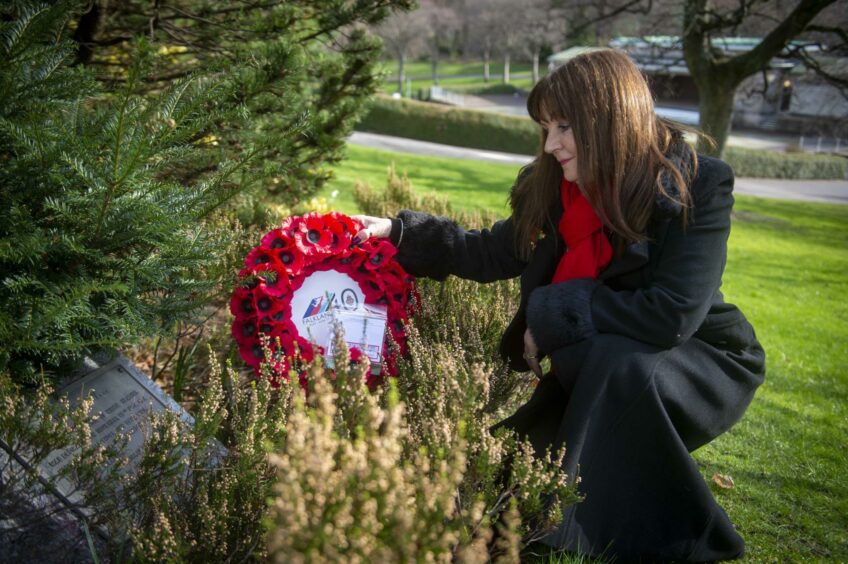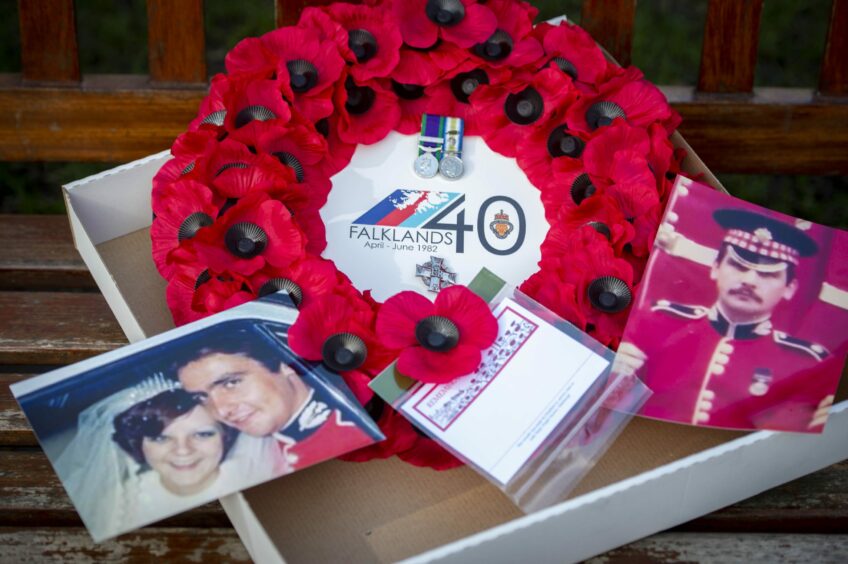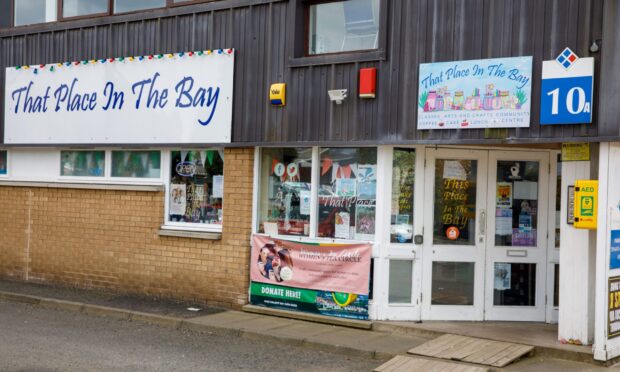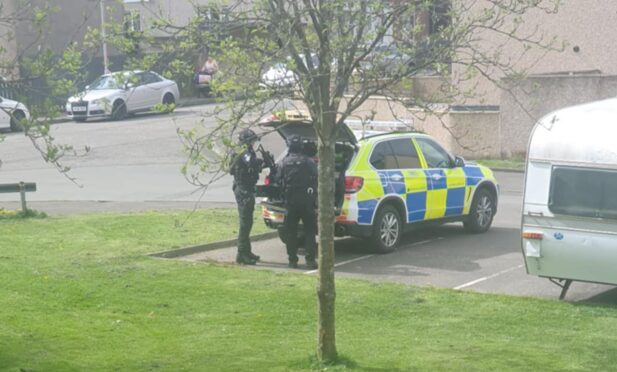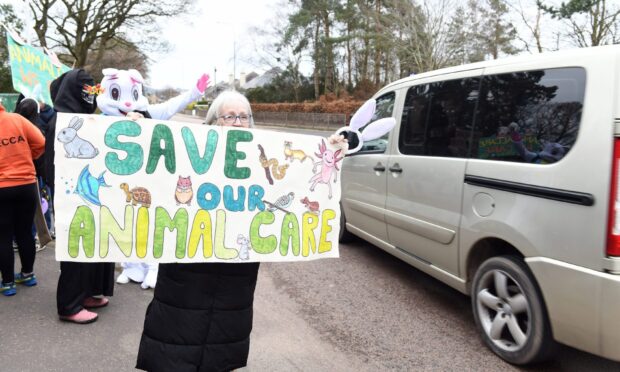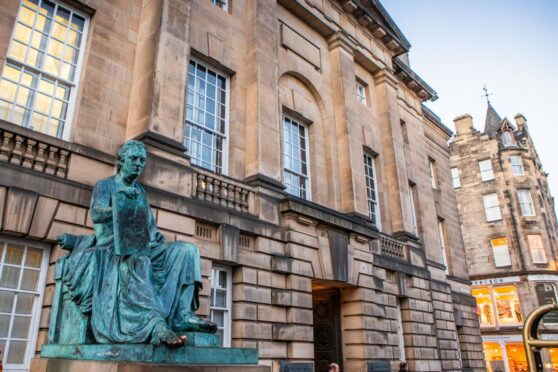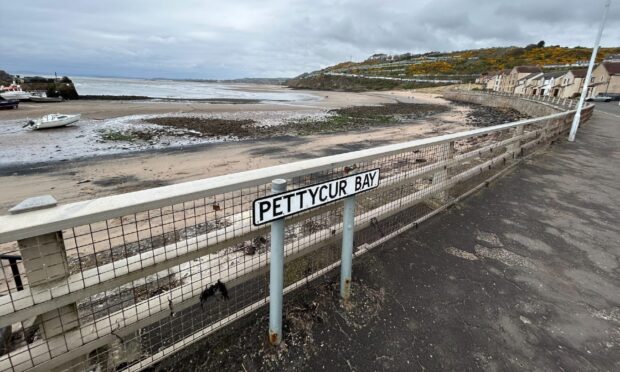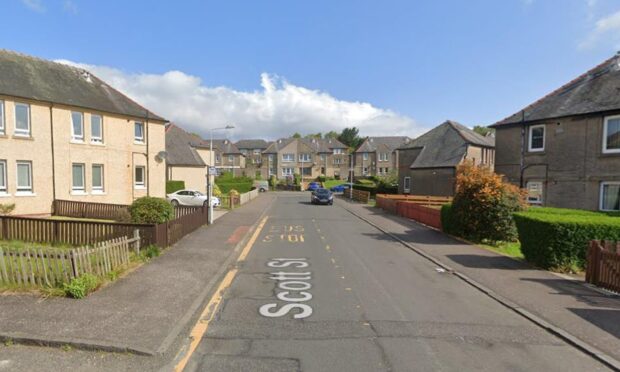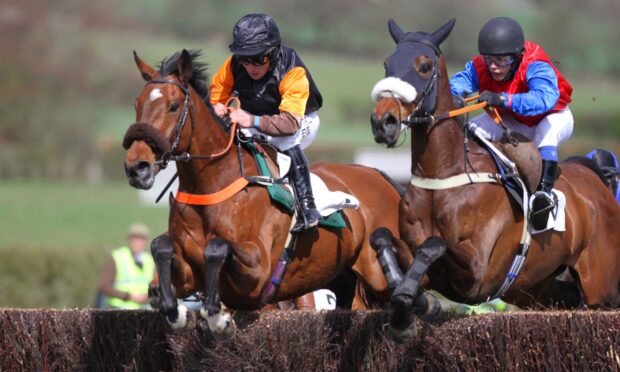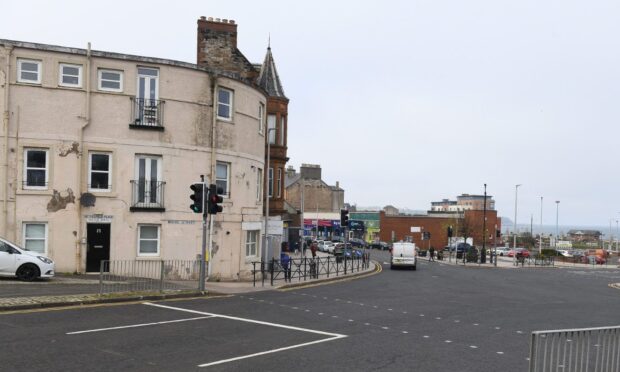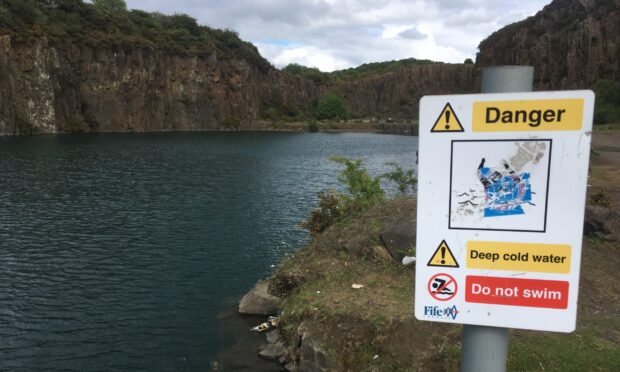Forty years after the start of the Falklands War, Michael Alexander speaks to Tayside and Fife veterans and families of the conflict as they reflect on battles fought and those who never made it home.
On April 2, 1982, a 10-week conflict began when Argentina invaded the British Overseas Territory of the Falkland Islands in the South Atlantic.
The islands, off the coast of Argentina, had been a cause of friction between the two countries since Britain claimed them in 1833.
The head of Argentina’s military junta, General Leopoldo Galtieri, welcomed the “recovery” of “Las Malvinas” – the Argentine name for the islands.
However, when the Falklands’ governor, Rex Hunt, refused to surrender on behalf of the islands’ 1800-strong population, the scene was set for a war, that was never officially declared a war.
On April 5, the British government, led by Prime Minister Margaret Thatcher, dispatched a naval task force to engage the Argentine navy and air force before making an amphibious assault.
The conflict lasted 74 days. While former British commanders have since told how Britain came close to losing the war, it ended with an Argentine surrender on June 14, returning the islands to British control.
In total, 255 British servicemen, 649 Argentine military personnel, and three civilians died, and many more were wounded.
45 Commando veteran
Major (retired) James Kelly, 61, who lives in Angus, has very clear memories of the day the Falklands War began.
He was a young Second Lieutenant with Arbroath-based 45 Commando and, that day, he was due to be seconded to the Scots Guards in Hong Kong.
On the night of April 1, he went into Arbroath with a troop of Marines to be “dined out”.
However, he’d only been back at Condor for a short time when in the early hours of April 2, a very loud klaxon sounded in the barracks and the gate was locked.
“A flash signal came through to say the Argentinians have just invaded the Falkland Islands,” he recalls.
“All Easter leave is cancelled, all postings are cancelled. Stand by for further orders.
“I remember going to the officers’ mess in a dressing gown or a track suit or something.
“We were all kind of huddled by a BBC World Service radio.
“Quite a senior major at the time said ‘thank God for that I thought it was the Russians!’ He thought the Third World War had just started!”
First to depart
Major Kelly, who is now regimental adjutant with the Scots Guards, explained how 45 Commando were the first British military to depart.
They flew from RAF Leuchars to Ascension Island, thinking that it was “nothing more than a little bit of show of force” on the part of Mrs Thatcher’s government.
As more ships and aircraft arrived at Ascension Island, however, they began to realise that Britain was assembling a task force.
After sailing to the Falklands aboard Royal Fleet Auxiliary ship Stromness, they landed in San Carlos Water, disembarked at Ajax Bay and dug in on higher ground.
For a week, they watched aircraft attacking ships and air battles.
Then reports started coming in of significant British losses including the sinking of HMS Coventry and HMS Sheffield.
They watched as HMS Ardent limped into Ajax Bay and sank before their eyes.
When they heard that the SS Atlantic Conveyor had been sunk while carrying British Chinook and other helicopters, Major Kelly says his first thought was: “Goodness gracious, who the hell is winning this war?”
The Commandos joked that with the sinking of the Atlantic Conveyor, they would end up yomping their way to Port Stanley. And of course that’s exactly what they did. They took part in the Battle of Two Sisters.
“I think we were in the field for 44 days with no fresh rations, no change of clothes, constantly freezing cold, constantly soaking wet, with wind chill temperatures well below zero,” he says.
“Everything that we had was on our backs. I think when we did start yomping east towards Stanley, I think we reckoned we carried up to 110lbs on our back, and with all the various detours and diversions, we reckon we did 110 miles.”
Well trained
Having completed an intense tour of West Belfast in 1981 and having just come off an Arctic deployment to northern Norway, Major Kelly recalls that 45 were “incredibly well trained” with good operational experience.
This contrasted with the realisation that quite a few of the Argentinian soldiers were young conscripts who hadn’t been trained hard at all.
He draws comparisons with the current conflict in Ukraine whereby young seemingly unprepared Russian conscripts have been sent by Putin to “liberate” a sovereign people.
However, as Major Kelly’s company commander said: “It doesn’t matter whether you are a highly trained soldier or a conscript, if you are sitting in a well defended rocky outcrop on the top of a mountain with a machine gun, you can be just as deadly whether you are trained or not trained.”
This was borne out when 13 men from 45 Commando were killed.
They included four men killed when they were tragically mistaken by the British as enemy while returning from a patrol.
War ‘horrible’ recalls radar operator
County Durham-born Graham Walker, who now lives in Burntisland, describes his experiences in the Falklands as “horrible”.
He was 22 and a young Leading Seaman (Radar) when the war began.
He had joined the Navy as a 16-year-old school leaver as he wanted to “travel the world”.
He was part of the crew of Rosyth-based HMS Yarmouth, nicknamed the “Crazy Y” due to its daring endeavours and rescues.
Arriving on April 30, their first mission was sailing into San Salvador Creek, under cover of darkness, to pick up SAS members who had been dropped by helicopter on the island.
Their next missions included escorting ships into San Carlos, nicknamed “Bomb Alley” under the constant threat of Argentinian air attacks.
Graham and his crewmates would fire back at the planes, hitting some of them.
He remembers going in to assist HMS Sheffield after she was hit, helping survivors with horrific burn injuries.
Gunfire support
Graham describes daily life on board the ship as six hours on, six hours off for 156 days, feeling unprepared for freezing conditions as they approached an Antarctic winter.
During the final battle, HMS Yarmouth provided naval gunfire support while troops advanced on Port Stanley.
They were close to HMS Glamorgan when she was hit with the loss of 14 British lives, and provided assistance.
However, it was only after the ceasefire that the reality of what they’d been through hit home.
“War is horrible,” says the now 62-year-old who left the Navy in 2000 and went on to teach business at university and further education colleges.
“It does have an effect on you. It impacts on the rest of your life – makes you more of an intense person.
“I can’t remember where I put my keys, but I can tell you every action we did on May 4 1982 when we got attacked by Exocet.”
View from the boiler room
Saltcoats-born grandfather Rick Irvine, 69, of Rosyth, spent 22 years in the Royal Navy.
He was a Leading Hand stoker in the boiler room aboard HMS Yarmouth and describes the war as “scary”.
At first the war didn’t seem real. But when HMS Sheffield was sunk, they knew they were in “dire straits”.
“We went alongside the Sheffield to rescue the guys along with HMS Arrow,” he recalls.
“I was in the boiler room at the time so I never saw anything up the top.
“All we got was the boiler room full of smoke.
“It was a bit dodgy but we got there and rescued quite a few guys.”
Rick, who went on to join the MoD civilian guard service and now runs a breakfast club for veterans in Limekilns, says it was “just luck” that there were no casualties on board the Yarmouth.
But it was a different story aboard HMS Ardent, which sank with the loss of 22 men.
Sinking of HMS Ardent
Retired technical studies, woodwork and graphics teacher Iain McRobbie, who is currently doing supply work at Balfron High School, was a leading weapons engineering mechanic aboard the Ardent when she sank on May 21 1982.
The Stirling-born 64-year-old, who joined the Royal Navy aged 16, recalls they went on a high speed run through potentially mined waters towards the San Carlos anchorage. It was quiet there until next morning when they fought off “attack after attack after attack” from Argentine aircraft.
“The final two attacks were the really bad ones,” he recalls.
“The first time we got hit I think the hanger got damaged.
“We lost a helicopter, lost our anti-aircraft missile system.
“We were getting on top of that and the next thing we knew we got jumped again but this time we had no weapons to fight back with and got hammered.”
As the Ardent went down, Iain recalls it was “nothing like in the films”.
“I was down trying to make sure the lads in the magazines got out,” he says.
“A mate came and said ‘you need to get out quickly and quietly’. That was really it. No panic.
“Everybody just took their time to get on top. Then the Yarmouth came alongside to take us off.
“We were on the Yarmouth for about two or three hours. The time just sort of vanished. Just after it got dark, a Royal Marine landing craft came alongside and took us off to the Canberra.
“We got on there, got fed. They decided the Canberra was too much of a target to stay where she was so they moved her out to sea.”
Warm welcome back home
While no veterans spoken to by The Courier would want to go through the Falklands War again, those who survived talk about the camaraderie and the incredibly warm welcome they received on their return home.
Iain, who later joined the Royal Naval Reserve at Granton and retrained as a school teacher, sailed back to Southampton with his Ardent colleagues aboard the QE2.
“There was an amazing reception – I’ve never seen so many people,” he says, adding that “no one comes out of a war the same person that went in”.
45 Commando, meanwhile, flew back from Ascension to RAF Leuchars.
Landing about 4am on a horrible dreich night, as they disembarked at a dark hangar, the floodlights came on and they were surprised to find the Royal Marine Band and hundreds of family and friends waiting for them.
The coach journey from Leuchars back to Condor via Dundee is an experience Major Kelly, who settled in Angus, recalls to this day.
“I’ll never forget seeing yellow ribbons round trees, old ladies with Union Jacks in their dressing gowns waving us through, police cars at every junction with their blue lights flashing to give us free passage through the town. It was an incredible welcome.”
Killed on final day of war
Not everyone, of course enjoyed the homecoming they deserved.
Theresa Davidson, 65, from Glenrothes, remembers the day the war ended as if it were yesterday.
However, that’s not because she was celebrating.
Her husband Lance Sergeant Clark Mitchell, from Laurencekirk, was killed on the day of the Argentine surrender.
He was one of eight Scots Guards killed in the Battle of Mount Tumbledown in the early hours of June 14.
Mrs Davidson, a foster carer, was just 25 when she was widowed.
She recently joined representatives from leading military charities Legion Scotland and Poppyscotland to lay a wreath in at the Falklands Memorial Garden in Edinburgh.
She spoke for the first time of her years of heartache following his loss and the importance of remembering the sacrifices of all those who served.
She says: “I remember it as if it were yesterday.
“I was in our quarters at Lasswade, Midlothian, when an officer and his wife came to the door to tell me the news. My world just fell apart. I lost everything: my husband, my best friend, the family we wanted together.”
Fond memories of married life
Mrs Davidson explained how she had met Clark, then a junior soldier from Laurencekirk, Aberdeenshire, at the age of 17 when she was training with the Women’s Royal Army Corps.
After an “amazing” six years of married life in Germany and England, they had returned to Scotland and were hoping to start a family when the conflict began.
Mrs Davidson says: “Nobody knew anything about the Falklands – we thought they were up in the north of Scotland. It was only when we saw the map, we realised they were 8000 miles away.
“When he was away, I had this dreadful fear, and just lived for the news.
“On the morning of the 14th I felt so happy and thought ‘Thank God the war is over’.
“But then it was like something had hit me, and I knew something had happened to Clark.
“Losing Clark changed me, and it took me years to rebuild my life. He was an extremely good soldier, but he was also very gentle, kind and caring, with a great sense of humour and zest for life.
“I will never forget him or the sacrifices he and the other men made. To me it’s about keeping their memories alive.”
Commemorative events
Leading military charities Legion Scotland and Poppyscotland have launched a programme of commemorative events in partnership with the armed forces and the Scottish Government, to remember the conflict.
The programme will culminate in a national parade and service of remembrance in Edinburgh on Saturday, June 18.
Falklands veterans and bereaved relatives are also being offered free travel and accommodation to attend the UK-wide service at the National Memorial Arboretum in Staffordshire on June 14, the anniversary of the ceasefire.
Other activities will include a package of resources for schools to allow young people to learn more about conflict as part of Poppyscotland’s wider learning programme.
Poppyscotland’s interactive mobile museum, Bud, will also visit schools in areas which have a close connection to the conflict, including Arbroath, which is home to 45 Commando, the Royal Marine unit which played a key role in the liberation.
An event that will see pipers across the globe join in tribute to those who fell will also form part of the commemorations.
Lasting impact of Falklands War
Dr Claire Armstrong, chief executive of Legion Scotland said: “The Falklands conflict was the first military action since the Second World War which involved all elements of the armed forces.
“Although it lasted just 74 days, it claimed the lives of hundreds of servicemen and had a lasting impact on thousands more, as well as their families.
“Many veterans still struggle with physical or mental scars, or have faced hardships in the years afterwards.
“Between April and June, communities across Scotland will be commemorating the 40th anniversary of this conflict and reflecting on the service and sacrifice of so many.
“We are pleased to be able to hold a national Scottish event in Edinburgh to engage with our armed forces, Legion Scotland members and the wider public, and would encourage everyone to play an active part in the commemorations.
Mark Collins, interim chief executive of Poppyscotland, said: “We want to remember the extraordinary efforts of thousands of service personnel, the civilians who played a vital role, as well as their families. This is also a chance for people of all ages to learn more about the Falklands conflict and how it has shaped our recent history.
“Poppyscotland’s learning programme will reach schools around the country, engaging young people and showing the impact that the conflict had on people and communities.
“By sharing veterans’ stories, we can bring their experiences to life as well as highlighting the role our armed forces play today and how we can support them and their families.”
